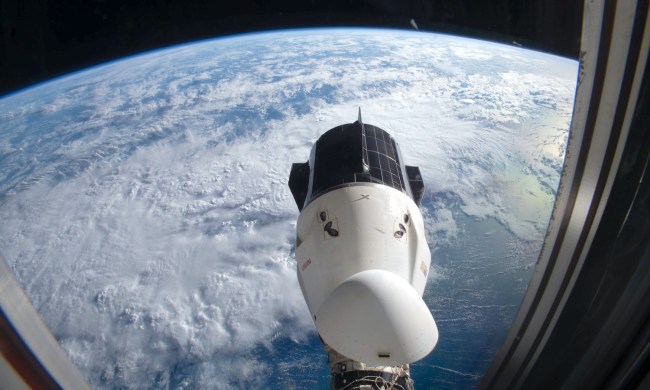
Based out of Los Angeles, California, Aecom is no stranger to the Hyperloop concept, having previously doled out funding to Hyperloop Transportation Technologies‘ own project. Additionally, the company’s own legacy lies with its laundry list of premiere construction projects such as Brooklyn’s Barclays Center, the Ottawa Light Rail Transit, the Hong Kong Science park, and the Alameda Corridor freight rail expressway. Considering it sees itself as a facilitator to “develop and implement innovative solutions to the world’s most complex challenges,” it seems more than fit to develop Musk’s futuristic Hyperloop system.

“Aecom has designed and built some of the world’s most impressive transportation systems, so we appreciate how the development of a functioning Hyperloop with SpaceX can dramatically expand the ways people move across cities, countries and continents,” Aecom CEO Michael Burke said in a statement. “What we are delivering is more than just a test track to test pod prototypes; it’s a glimpse into the future.”
Built nearby SpaceX’s offices in Hawthorne, California, Aecom plans to begin construction of the 6-foot-wide, 1-mile-long test track this spring. Though pricing has not yet been disclosed by SpaceX or Aecom, the latter did unveil a bit more of the test tracks specifics, saying “the test track’s 6-foot diameter steel tube will include a non-magnetic sub-track.” It added further that the track would be “cradled in place above ground” and will “serve as a vacuum-sealed, high-speed proving ground for transport pod prototypes being developed as part of a SpaceX design competition.”

The competition, officially dubbed the “Design Weekend” and taking place January 28 and 29 at Texas A&M University, tasks thousands of students with designing capable Hyperloop test modules. Whomever SpaceX and Aecom deem the eventual winner will then have the opportunity to put their design to the test by building a life-size version, and running it on Aecom’s completed test track. To make the weekend more intriguing, the startup Hyperloop Technologies also plans to be on hand during the competition, having already inked a partnership with SpaceX to officially sponsor the contest.
According to the press release, Aecom remains mum on which company it intends to move forward with past the test phase saying “multiple groups are involved in Hyperloop development efforts, and Aecom has not endorsed or validated any technology or approach. Despite its noncommittal stance, the fact three separate test tracks remain tentatively scheduled for development in 2016 shows Hyperloop tech is poised for an incredibly momentous year.


